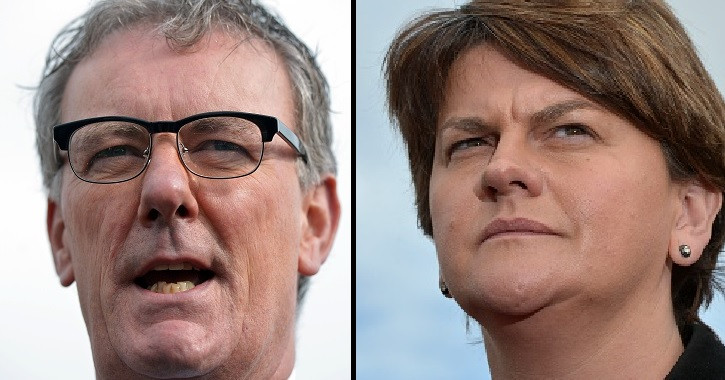EU referendum: Northern Irish Unionists split over Brexit vote after UUP backs 'remain'

The two main unionist parties in Northern Ireland are split over the EU referendum after the Ulster Unionist Party (UUP) backed a 'remain' vote.
The decision means they are at odds with Democratic Unionist Party (DUP) but are on the same side of the argument as Sinn Fein and the Social Democratic and Labour Party (SDLP).
"The UUP believes that on balance Northern Ireland is better remaining in the EU, with the UK government pressing for further reform and a return to the founding principle of free trade, not greater political union," a statement from the UUP said.
But the party stressed it "respects" individual members may back 'remain' at the 23 June ballot.
The confirmation comes after a UUP source told IBTimes UK it was set to make a "soft 'Yes'" decision on the EU referendum.
The party has two MPs in the House of Commons and controversial Eurosceptic Enoch Powell once represented South Down as a UUP MP after being elected at the 1974 general election – just a year before the UK's referendum on its membership of the European Economic Community (EEC).
The UUP's decision also comes ahead of the Northern Ireland Assembly elections in May. The party currently has 13 MLAs, making the UUP the fourth largest party in Stormont behind the DUP, Sinn Fein and the SDLP.
UUP leader Mike Nesbitt had warned a 'remain' vote at the EU referendum could lead to the break- up of the UK, with the Scottish National Party pushing for another independence referendum.
But the DUP MP Sammy Wilson branded Nesbitt's claim as "weak" and argued that the SNP would campaign for independence regardless of the EU referendum result.
Grassroots Out, one of the groups vying for the Electoral Commission's Brexit campaign designation, recently held a rally in Belfast with speeches from Ukip leader Nigel Farage, Wilson and Labour MP Kate Hoey.
The latest UK-wide opinion poll for the EU referendum from YouGov, of more than 1,600 people between 2 and 3 March, put 'remain' three points ahead of 'leave' (40% versus 37%), with 18% of respondents undecided.
© Copyright IBTimes 2025. All rights reserved.






















